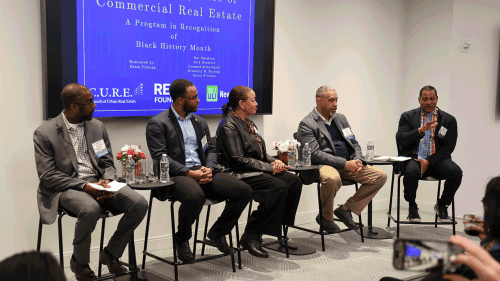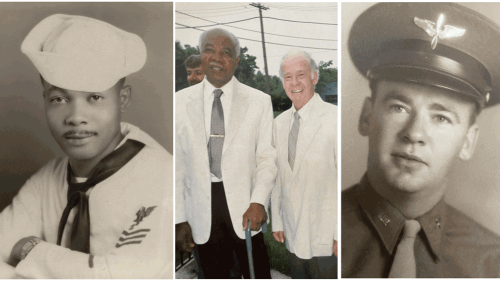Los Angeles attorney George Fatheree III—who made national headlines for aiding members of the Bruce family in the return of beachfront property that was taken from their ancestors, nearly a century ago, through eminent domain—is embarking on a new venture, his own social impact fintech, ORO Impact.
Fatheree has worked for more than a decade as a corporate attorney, as a partner at both Munger, Tolles & Olson LLP and Sidley Austin LLP, and as counsel in the real estate group at Skadden, Arps, Slate, Meagher & Flom. However, his new mission—to aid in closing the racial wealth gap by helping to increase homeownership among Black families—was inspired by his involvement with the Bruce family.
“It was what I said in the phone call with them when I asked them to hire me,” Fatheree recalls. “What I said … was, ‘I feel like I’ve been preparing my entire life and career to be of service to your family in helping secure the return of your family’s land.’”
He refers to Bruce’s Beach as a “defining moment” in his life and career. What happened with Bruce’s Beach has also had ripple effects nationwide. The case dates back to 1912, when Willa and Charles Bruce, a Black couple, purchased property in Manhattan Beach, California.
They built a resort for Black Americans about three years later that included a hotel, space for dancing, and a café. The place later received the moniker Bruce’s Beach. Their success was even more poignant, as Black Americans were actually banned from most beaches in Los Angeles County at the time.
After years of harassment, the city of Manhattan Beach took steps in 1924 to condemn the property, then seized it through eminent domain. The Bruces filed a lawsuit in an attempt to fight the seizure, but eventually they lost the property.
However, descendants of the Bruces were able to have the land returned in 2022, after Los Angeles County officials approved transferring ownership of the property back to them. The Bruces eventually decided to sell the land back to Los Angeles County for $20 million.
“I fully supported the decision by the Bruce family to sell their land back to L.A. County,” says California State Senator Steven Bradford, District 35. “As we know in real estate, location is key, but zoning also matters. Given the zoning restrictions placed on the usage of the land, the heirs would have faced lengthy and costly efforts in an attempt to commercially utilize the land. Selling the property back to the county returns the generational wealth that for decades was illegally denied to Willa and Charles Bruce’s descendants.”
Bradford, working with Fatheree, drafted legislation, known as Senate Bill 796, which authorized Los Angeles County to return the Bruce’s Beach property to the family It unleashed a whirlwind of other families, nationwide, inundating Fatheree with requests for help.
“Once my involvement in the Bruces’ case became public,” Fatheree says, “I started getting a phone call or an email every day from Black families, across the country, with similar stories about their family’s dispossession of their property.”
The requests involved incidents that dated back as long as 30 to 150 years ago, according to Fatheree, who began to see beyond Bruce’s Beach and came to the realization that “our legal remedies are inadequate to provide recovery” to these families in these cases.
He examined how local, state, and federal governments have historically been involved in actions that led to property being taken from Black families. As a result, such seizures have destroyed the opportunity for many Black families to be able to generate wealth they could subsequently pass down to their families, Fatheree explains.
In every state in America, people of color—not solely Black families—are less likely to own a house than white families, according to the Joint Center for Housing Studies of Harvard University. The center’s research has found that Black households have the lowest homeownership rate nationwide, at only 41.7 percent. That is 30 percentage points lower than what white families’ enjoy.
“The reason that ULI is such an important organization for me,” Fatheree says, “is because ULI’s members are the first line of defense in making sure that decisions about who owns property, who develops property, who acquires property—that those decisions are done in a way that, for starters, is fair and equitable, and then, hopefully, is also done in a way that it can be corrective and restorative.”
He hopes to help change the statistics through ORO Impact. The fintech specifically has a goal of closing the wealth gap, in general, and the racial wealth gap, in particular, by increasing access to down payments for minority homeowners. ORO Impact plans to work with companies that will make loans to their employees for this purpose. He says Black and brown families are often subject to appraisal and property tax discrimination. Fatheree hopes to change that state of things, as well as to make his company’s offerings as commonplace as the 401k.
“I talk a lot,” Fatheree says, “and I focus a lot [on] the work that we have to do to remedy the injury that happened in the past, but the first thing we need to do is to stop the injury from continuing today.”






